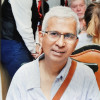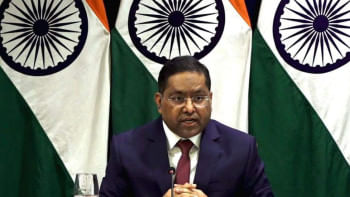Why liberal arts education matters

In the Vatican, there is a fresco by Raphael called "The School of Athens." It depicts an imaginary congregation of many of the great Greek polymaths, philosophers, painters, sculptors, poets, and scientists—the very shapers of modern western civilisation. The core motif is that each of them also represents a Renaissance counterpart. Attempts at identifying the figures have been hypothetical and some still elude identification. Still, the fresco is considered "the perfect embodiment of the classical spirit of the Renaissance" (History of Art: The Western Tradition by Janson and Janson). There is a theory proposed by several western historians that human knowledge originated in Greece, went to the Romans, then there was a period of intellectual darkness ("Dark Ages"), followed by the Age of Enlightenment ("Renaissance," 1300-1800).
A BBC documentary, "East to West," aired in 2011, makes an interesting point. This fresco also includes one rather unusual person, Averroes, also known as Ibn Rushd (1126-1198), an Andalusian polymath. Andalusia was a part of modern Spain that the Arabs controlled, with varying sizes, from 8th to 15th centuries. Averroes is distinct from the rest because of his dark skin and turban. Why did Raphael include Averroes? The fact that he was a practitioner of Aristotelian philosophy comes to mind. He made it a lot easier for the Europeans to study Aristotle with elaborate commentaries on his philosophical writings. Raphael appears to have wanted to convey the message that the Renaissance movement is directly linked to the rediscovery of the classical period of Rome and Greece.
However, there are other views as well. In his book The Crest of the Peacock: Non-European Roots of Mathematics, George Gheverghese Joseph, from the University of Manchester, takes us through a journey of mathematics from ancient Egypt to Europe, stopping by at Greece, Mesopotamia, India, the Arab World, China and the Mayan empire. Joseph shows how several civilisations in different parts of the world have contributed to the development of mathematics (and knowledge in general) to its present form.
The idea of "Dark Ages" originated with the Tuscan scholar Petrarch in the 1330s. Since the advent of postmodernism, scholars started to avoid the use of this term, because it was understood that during the so-called "Dark Ages" significant cultural, mathematical and scientific activities were going on in other parts of the world. However, the original idea behind the term, that darkness fell with the fall of the Romans and the light of knowledge reappeared during Renaissance, and that no other race or region had any role in the advancement of human civilisation, became popular and remains so to this day.
Just one popular myth can affect a whole nation, as has happened in China. Romance of the Three Kingdoms is a 14th-century novel set in the turbulent years towards the end of the Han dynasty, starting in 169 AD and ending with its reunification in 280. It is a mixture of history, memory and myth, which romanticises and dramatises the lives of feudal lords and their retainers who tried to establish a unified Han China. The influence of this novel on modern China is phenomenal. It has been adapted into TV serials, animation films, video games and countless movies. Its storyline has shaped the historical consciousness of modern China, which drives its demand for reincorporation of Taiwan. (See Fukuyama's The Origins of Political Order.)
We romanticise the past to fit the present. Inspiring lies are often more popular than complex truths. Despite what we may like to think, history is a complex series of inter-related events where characters play different roles to combine different purposes. Studying history is a continuous process because it gets more and more complex as we come across new facts and interpretations. This is where it also gets really interesting because we learn not just from history itself, but also from fiction, films, computer games, popular songs, drama, and so on. This is where a broad-based, well-rounded education becomes quite relevant.
In a recent article, JM Olejarz puts up a strong point in favour of wider education ("Liberal Arts in the Data Age," Harvard Business Review, Jul-Aug 2017). Olejarz says that choosing a field of study is less important than finding ways to expand our thinking. Although some tech industry leaders have said that anything outside the STEM (science, technology, engineering and management) fields is not relevant in the digital age, more and more recent research works show the reality is rather different. There is a long list of successful tech CEOs who came from liberal arts background. What matters is not the skills one has, but what one thinks. This can come only from a well-rounded learning experience, as opposed to a narrow one.
Why are all these thoughts and facts of any relevance to us? Bangladesh is on a path to become a modern nation. This target is being pursued with ambitious infrastructure initiatives and increased efforts on science and technology education. However, infrastructure and education with a narrow focus cannot make a great nation.
Currently, there is hardly any financial or moral investment in the study of liberal arts, pure sciences, music or art—the very foundations of any vibrant society. Wider education and investment in diverse interests is needed to think, connect dots, analyse and solve complex human problems. Our education should therefore be broadened and aimed at creating a stronger nation, a nation with empathy, which will carve out its legitimate place in the world stage. This way we can benefit from our heritage of thousands of years, and that of the rest of the world, with which we have interacted for mutual benefits over so many millennia.
Dr Sayeed Ahmed is an engineer with an interest in broad-based development.






Comments